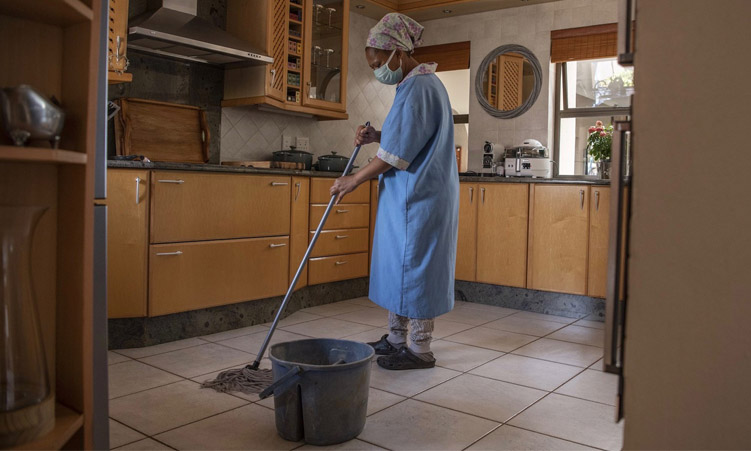. . . say minimum wage could result in reduced working hours and dismissal
Domestic workers fear losing their jobs and having their working hours reduced when the gazetted minimum wage of N$18 per hour kicks in next year.
The secretary general of the Namibian Domestic and Allied Workers Union (Ndawu) Union, Nelly Kahua, this week told Desert Radio the new minimum wage will create significant challenges for domestic workers and the union.

She said the change could lead to increased complaints and difficulties for workers.
“It might bring in a complication where working days are reduced and these are the same challenges we have been facing since 2015 and during the time of Covid-19.
“From now on it’s something we need to expect and need to work on,” Kahua said.
She said many domestic workers currently earn less than N$1 000 or around N$2 000 a month at most as they only work for two or three days.
Reduced hours could lead to even less income, she said.
Kahua said the issue needs to be discussed between employees, employers and the Ministry of Labour, Industrial Relations and Employment Creation.
“Maybe we need to have a face-to-face panel to see how we are going to tackle the challenge if workers are faced with reduced hours,” Kahua said.
According to the new wage order published by the labour ministry recently, the national minimum wage for domestic workers will be phased to increase over a period of three years.
Domestic workers must be paid N$12,02 per hour in 2025, N$15,01 per hour in 2026, and N$18 per hour in 2027.
Domestic workers are currently paid a minimum of N$9,03 per hour as per the current Wage Order for Domestic Workers.
This order expires on 31 December this year.
Kahua commended the government’s decision to implement a minimum wage, but said Namibia still has a long way to go before achieving a living wage for all its citizens.
“Earning N$18 per hour for domestic workers is still very far from being on par with the cost of living, considering the living conditions domestic workers are facing,” she said.
She said most domestic workers are currently living in informal settlements and many struggle with housing.
“With the current minimum wage, domestic workers are not even able to go to the bank to apply for a home loan, because what can you do with a salary of N$1 500 or N$1 200?” Kahua asked.

Labour expert Herbert Jauch on Tuesday said the introduction of the new national minimum wage will improve the lives of many Namibians stuck in low-paying jobs.
He, however, raised concerns over adhering to the order, saying there have been major weaknesses in complying with the sectoral minimum wages that cover sectors like construction and farming, as well as domestic workers and security guards.
“Although the minimum wages there are stipulated, they are currently below the national minimum wage that will come into being, but even these lower sectoral minimum wages have often not been implemented,” he said.
Jauch said workers and unions need to be prepared to make sure employers comply with the order.
The calculation of wages under this new order excludes any payments made for performing duties, allowances for travel, housing, or professional matters, gratuities like bonuses or tips, overtime pay, additional pay for Sunday or public holiday work, night work pay and payments related to pensions, annuities, medical benefits, or insurance.
Stay informed with The Namibian – your source for credible journalism. Get in-depth reporting and opinions for
only N$85 a month. Invest in journalism, invest in democracy –
Subscribe Now!






